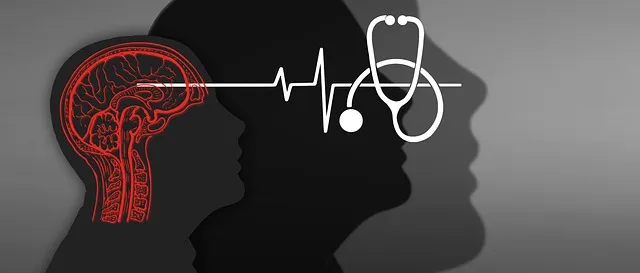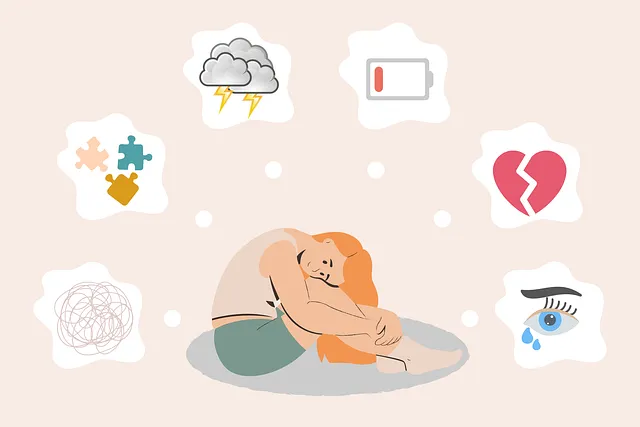The media significantly shapes public perception of mental health, with accurate and sensitive representation reducing stigma and encouraging help-seeking behaviors. Inaccurate portrayals perpetuate stereotypes and marginalization. Organizations like Kaiser Permanente's Norcal Lone Tree initiative combat this by providing resources, such as their mental health phone number, and promoting cultural sensitivity in mental healthcare practices. By featuring authentic narratives and educating the public, media can destigmatize mental illness and foster a more supportive society.
Mental illness representation in media significantly influences public perception and awareness. This article delves into the challenging yet crucial topic of enhancing mental health portrayal, addressing its profound impact on societal understanding. We examine the current landscape, highlighting negative stereotypes perpetuated by media. Subsequently, we explore positive changes through effective strategies for more accurate representation. As demonstrated by Kaiser Permanente’s Norcal Lone Tree Initiative, proactive initiatives can foster better mental health support systems. For more resources, contact the Kaiser Permanente mental health phone number for guidance and assistance.
- Understanding the Impact of Media Portrayal on Mental Health Awareness
- The Current State: How Media Often Misrepresents Mental Illness (with a focus on negative stereotypes)
- Positive Changes: Effective Strategies to Enhance Mental Health Representation in Media
- Kaiser Permanente's Approach: A Case Study Using the Norcal Lone Tree Initiative as an Example
Understanding the Impact of Media Portrayal on Mental Health Awareness

The media plays a significant role in shaping public perception and understanding of mental health issues. Accurate and sensitive representation in films, television shows, and news articles can significantly contribute to Mental Health Awareness, fostering empathy and reducing stigma. However, inaccurate or stereotypical portrayals can lead to further misunderstanding and marginalization of individuals struggling with mental illness. For instance, characterizing conditions as solely dramatic or exaggerating symptoms can be detrimental, especially for viewers who might be going through similar experiences.
Accessing reliable resources like the Kaiser Permanente mental health phone number Norcal Lone Tree can provide accurate information to both consumers and healthcare providers. This is where initiatives focused on Cultural Sensitivity in Mental Healthcare Practice and Healthcare Provider Cultural Competency Training become crucial. By ensuring media and healthcare professionals alike are equipped with the right knowledge, we can collectively challenge negative stereotypes, improve support systems, and encourage individuals to seek help without fear of judgment or misconception.
The Current State: How Media Often Misrepresents Mental Illness (with a focus on negative stereotypes)

The media’s portrayal of mental illness often falls short of accuracy and can perpetuate harmful stereotypes. Unfortunately, many popular depictions in films, television shows, and news articles lean into negative tropes, contributing to a culture of stigma and misunderstanding. This is particularly concerning given the prevalence of mental health challenges, affecting millions across the globe.
For instance, media frequently portrays individuals with mental illness as unpredictable, dangerous, or simply weak, failing to capture the complex spectrum of conditions. Such representations can be disheartening for those struggling in silence and deter potential seekers of help. Organizations like Kaiser Permanente Norcal strive to offer resources, such as their mental health phone number and Stress Reduction Methods, to combat these stereotypes by promoting understanding and Compassion Cultivation Practices. By highlighting realistic narratives and encouraging open conversations, media has the power to shape public perception and encourage support for those facing mental health battles.
Positive Changes: Effective Strategies to Enhance Mental Health Representation in Media

The media plays a powerful role in shaping societal perceptions, including how we understand and respond to mental health issues. Thankfully, there’s a growing movement towards more accurate and empathetic representation. Positive changes are underway as media outlets recognize the impact of their storytelling on audiences, especially vulnerable populations.
Effective strategies include increasing access to resources like the Kaiser Permanente mental health phone number Norcal (for those seeking support) and featuring diverse characters with authentic narratives that reflect real-life experiences. By incorporating depression prevention initiatives, conflict resolution techniques, and crisis intervention guidance into storylines, media can contribute to destigmatization. These approaches not only educate viewers but also provide valuable insights into the tools and resources available for managing mental health challenges, ultimately fostering a more supportive and understanding society.
Kaiser Permanente's Approach: A Case Study Using the Norcal Lone Tree Initiative as an Example

Kaiser Permanente, a leading healthcare organization, has taken a significant step forward in addressing mental illness representation in media with its innovative Norcal Lone Tree Initiative. This initiative serves as a powerful case study, demonstrating how businesses can actively challenge stereotypes and promote accurate portrayals of mental health struggles. By offering a dedicated mental health phone line, Kaiser Permanente provides a direct support system for individuals seeking assistance.
The Norcal Lone Tree project aimed to create a more nuanced understanding of mental illness by sharing personal stories from the community. Through this approach, they encouraged open conversations about self-esteem improvement, burnout prevention, and stress management—all while highlighting the diverse experiences of those affected. This strategy not only educates the public but also fosters empathy, challenging societal norms and the often-misunderstood nature of mental health conditions.
In light of the significant impact media portrayal has on mental health awareness, it’s encouraging to see positive changes taking root. By challenging negative stereotypes and implementing effective strategies, such as those demonstrated by Kaiser Permanente’s Norcal Lone Tree Initiative, the media can foster a more accurate and compassionate understanding of mental illness. Engaging with these initiatives and supporting organizations like Kaiser Permanente through their mental health phone number can help create a more inclusive and supportive society for all.






